News and Articles
Towards adopting nanotechnology in irrigation: Micro irrigation systems
Posted on 21 Jan, 2011 07:36 PMIndia is predominantly an agricultural country and even with current orientation towards services, still agriculture contributes ¼th of total GDP of the country, 15 percent of total export and 65 % of total population’s livelihood.
Towards ruin: Regularisation rather than regulation has become the norm in our coastal policy at present, which is actively undoing one of India’s most significant environmental regulations - Claude Alvares
Posted on 21 Jan, 2011 03:58 PM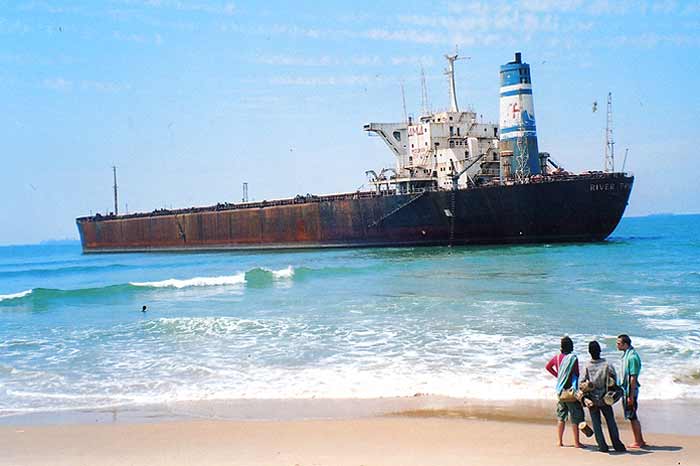
MV River Princess Stranded for 10 years now, the grounded ship has been wreaking ecological havoc on Candolim beach in Goa
Indira Gandhi’s concerns about protecting the ecology of India’s coasts, which held sway for almost 20 years, are being subverted under a regime supervised by her daughter-in-law and grandson.
Sustainable water management initiatives in Konkan under threat - A report
Posted on 21 Jan, 2011 02:09 PMGuest Post by: Parineeta Dandekar
At the first sight, Daarche Paani (‘water at the doors’) appears unreal.. on a small flat plateau called ‘Sadaa’ in konkan, an elegant cobbled walkway leads a puzzled visitor to stairs carved in stone, which go down to an ancient grove, and here is an intricate system of tanks, channels and falls which supplies water to the Panderi village and goes down as a free flowing stream, to irrigate a plantation of arecanut, pepper and mangoes in a village called Gudaghe. When I visited the place, I could see three eminent visitors, a silent lady washing her load of clothes, a fairy bluebird splashing at a tank and a huge moonmoth in one of the trees.
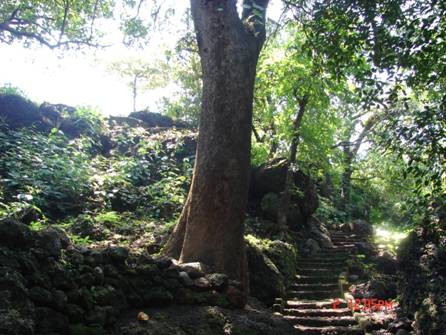 Stone walkway and ancient mango trees leading to Daarche Paani.
Stone walkway and ancient mango trees leading to Daarche Paani.
Photo: Parineeta Dandekar
Briscoe on the Indus treaty - A response from Ramaswamy Iyer - Economic and Political Weekly
Posted on 21 Jan, 2011 09:11 AMThis paper published in the Economic and Political Weekly, provides a critique of the writings by John Briscoe on the implementation of the Indus Waters Treaty and argues that it is a biased and a one sided presentation of issues, which ridicules and ignores the attempts made by India at negotiating with Pakistan and reaching a peaceful agreement over the water issue.
Heavy Rains in Sri Lanka - Update from Earth Observatory
Posted on 20 Jan, 2011 01:48 PMSri Lanka’s government stated that the death toll from flooding had risen to 13, and officials were arranging food drops to hardest-hit areas in the east.
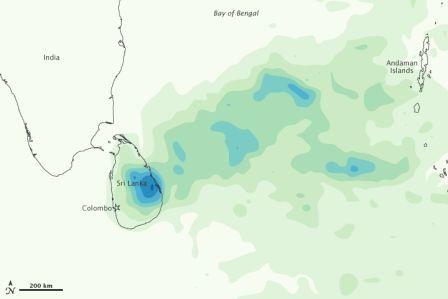
![]()
Whose water? Privatisation of water, a bane for consumers
Posted on 18 Jan, 2011 11:47 PMAll of us have felt the joy of slaking one's thirst with water, washing away the unforgiving heat of a Delhi summer with a cool glass of water. But have you ever paused to think about where we get our water from? How are we using this resource? Is it finite or will be always get clean water, everyday, for all our needs?
2010: The year of climate records
Posted on 18 Jan, 2011 11:35 PMArticle Courtesy: Cognizant Reflections
Author: Sangeeta Deogawanka
The year 2010 has witnessed a few climate records that has mounted evidence of climate change the world over.
- It marked the end of the warmest decade since climate records were kept.
- It has been one of the three warmest years recorded, since 1850.
SRI - Less seeds, water , fertilisers lead to greater yields
Posted on 18 Jan, 2011 11:21 PMBHUBANESWAR, India, Dec 29, 2010 (IPS) - When French Jesuit priest and passionate agriculturist Henri de Laulanie developed the System of Rice Intensification (SRI) method of cultivation for Madagascar’s poor farmers in the 1980s, he probably had no idea that millions of farmers elsewhere in the world would one day benefit from it as well.
Linear turbine developed in New Zealand - Trials, drawings, videos
Posted on 18 Jan, 2011 11:17 PMMark 1 model ready for launch 1984
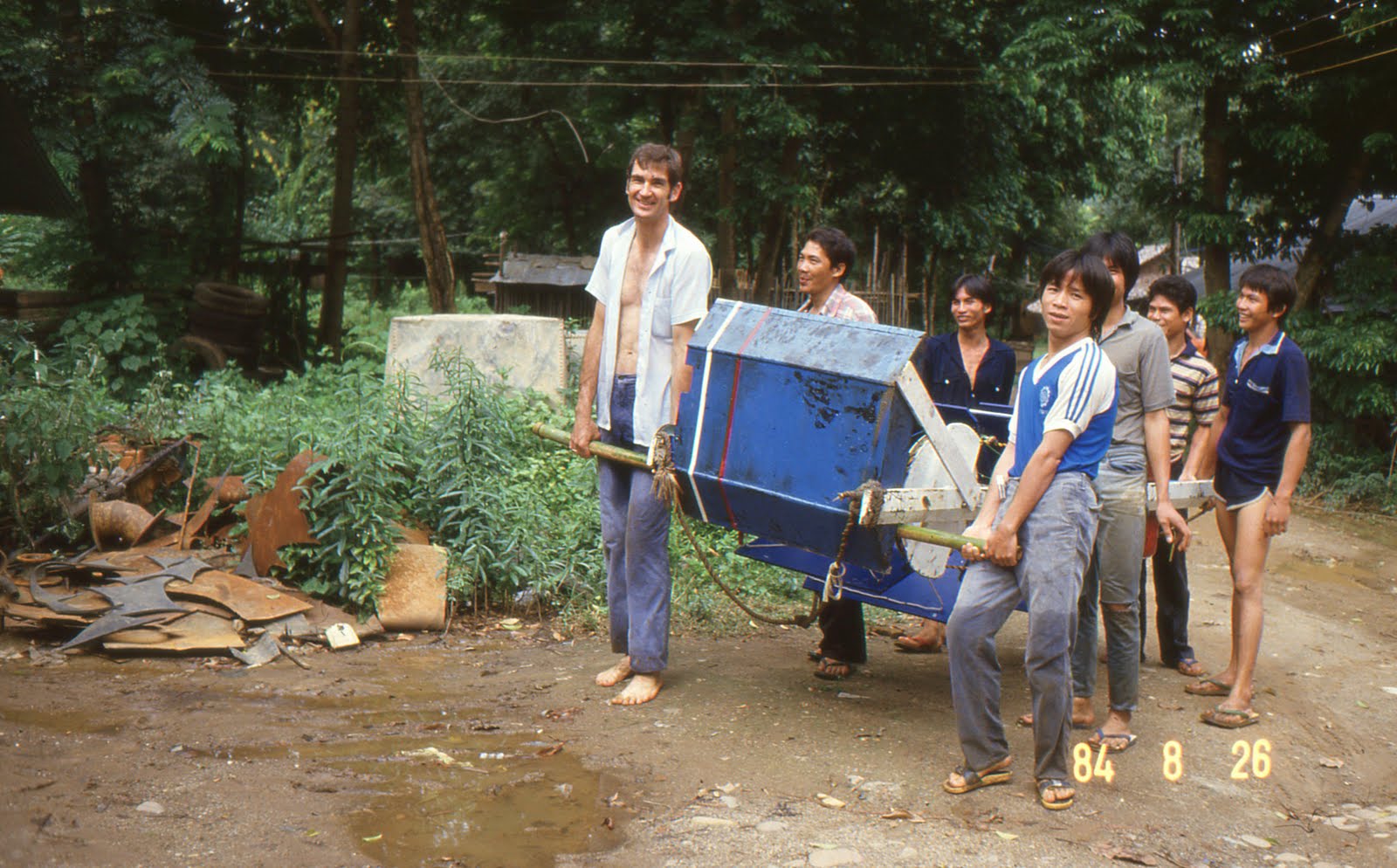
Trials in Pai river northern Thailand 1986
The report of the Krishna Water Disputes Tribunal-II (2010)
Posted on 18 Jan, 2011 08:26 PM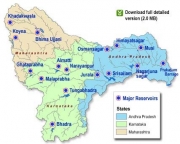 KWDT-II freshly assessed the yearly yields in the Krishna and determined the award on the basis of the yearly yield at 65 per cent dependability which was assessed at a total of 2,293 tmcft.
KWDT-II freshly assessed the yearly yields in the Krishna and determined the award on the basis of the yearly yield at 65 per cent dependability which was assessed at a total of 2,293 tmcft.
In its order, announced in an open court, the tribunal allocated a total share of 1,001 tmcft to Andhra Pradesh, 911 tmcft to Karnataka and 666 tmcft to Maharashtra with certain restrictions imposed on each State in keeping with the dependable flows of the rivers on which the allocations have been made. The allocation under the first award (KWDT I) was 811 tmcft for Andhra Pradesh, 734 tmcft for Karnataka and 585 tmcft for Maharashtra.